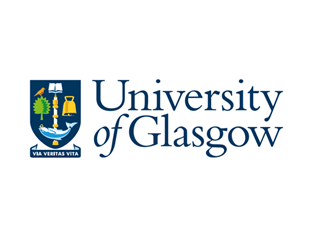Glasgow Computing Science Innovation Lab (GLACSIL) is aimed at bridging the gap between research and real-world application. The innovation lab’s mission is to capitalise on existing partnerships with companies, spanning SMEs to multinational corporations across various sectors.
The official launch for the new lab took place on 22 March, and brought together researchers from the School of Computing Science with representatives from six leading companies, including Bell Nokia Labs, BT Research, Thales, Moodagent, International Data Flows, and DotPhoton.
By fostering closer ties between researchers and industry partners, GLACSIL aims to stimulate new research collaborations, capitalise on joint funding opportunities, and drive the development of innovative commercial products.
A primary focus for GLACSIL will be to facilitate knowledge exchange between the School of Computing Science and member companies. Through participation in research seminars, workshops, networking events, and other activities, members will engage in discussions to address key research questions relevant to both academia and industry.
“Universities are unique spaces where researchers have the freedom to explore ideas that they find interesting and push forward new technological developments. GLACSIL partners will have the inside track on learning about those breakthroughs,” said Jill Dykes, GLACSIL’s co-director.
“Companies can benefit from partnering with universities to tap into our expertise, augment their own research and development work, and fund studentships which can create graduates custom-tailored for their needs. GLACSIL will work to bring all that activity under a single umbrella for partners we’ve already built quality relationships with.”
Thales, one of GLACSIL’s founding partners, has collaborated with University researchers to develop multi-sensor solutions for security applications. Nicholas Wood, Chief Electro-Optics Technologist at Thales, expressed excitement about the partnership, highlighting the alignment between Thales’ technical needs and the expertise of Glasgow’s researchers.
“The specialist technical skills and knowledge that our business requires is highly synergistic with the expertise of the researchers at the University of Glasgow’s School of Computing Science. We’re excited to be a founding partner of GLACSIL and we’re looking forward to expanding our partnership with the University in the years to come,” he said.
Professor Phil Trinder, GLACSIL’s academic lead and Co-Director, outlined the lab’s ambition to bridge the gap between fundamental research and real-world application.
“Our ambition with GLACSIL is to build a culture that effectively bridges the gap between fundamental research and real-world application,” he said
“That’s why we’re starting relatively small with companies that we already have a close relationship with, so we can build an innovation lab with a shared research culture, enabling new opportunities for collaboration and a frictionless exchange of knowledge.
“Ultimately, the goal is to make GLACSIL accessible to companies of all sizes who could benefit from working closely with our academics. We’re looking forward to developing GLACSIL as an important part of Scotland’s thriving research and innovation culture in the years to come.”
Source: DIGIT

